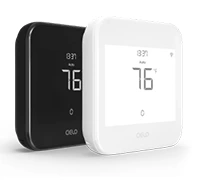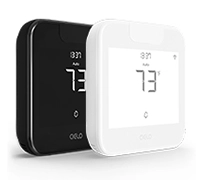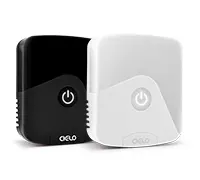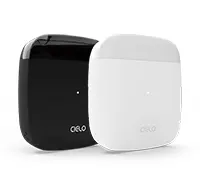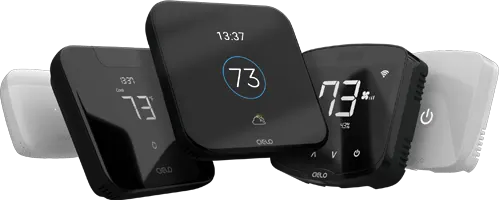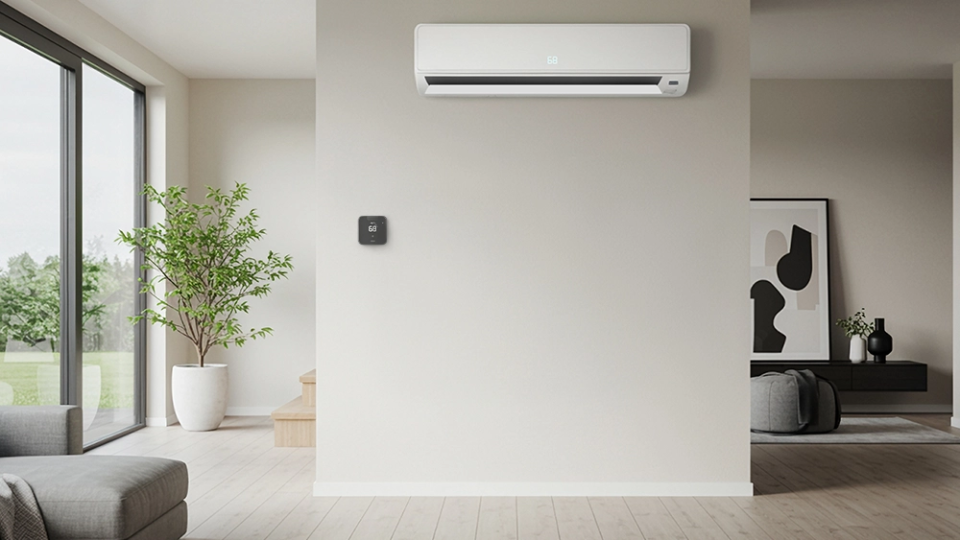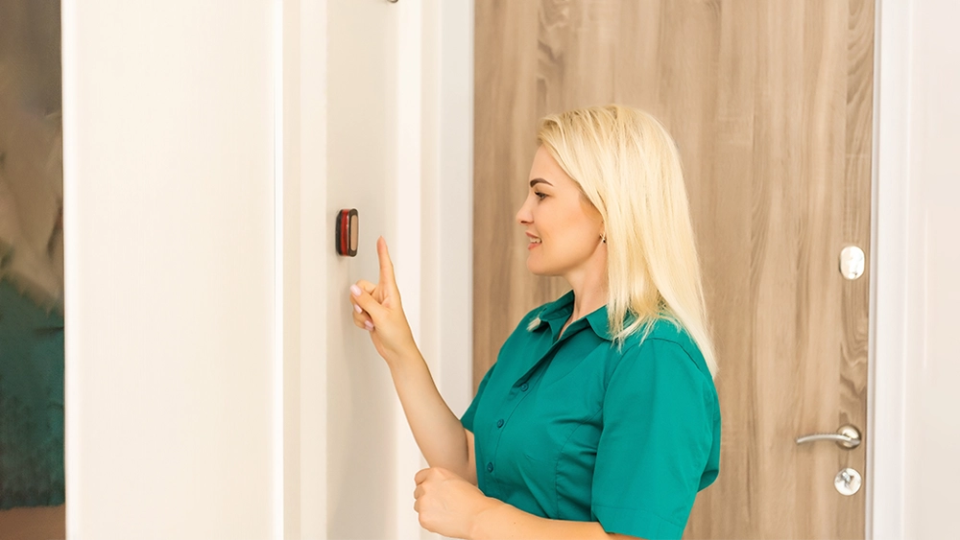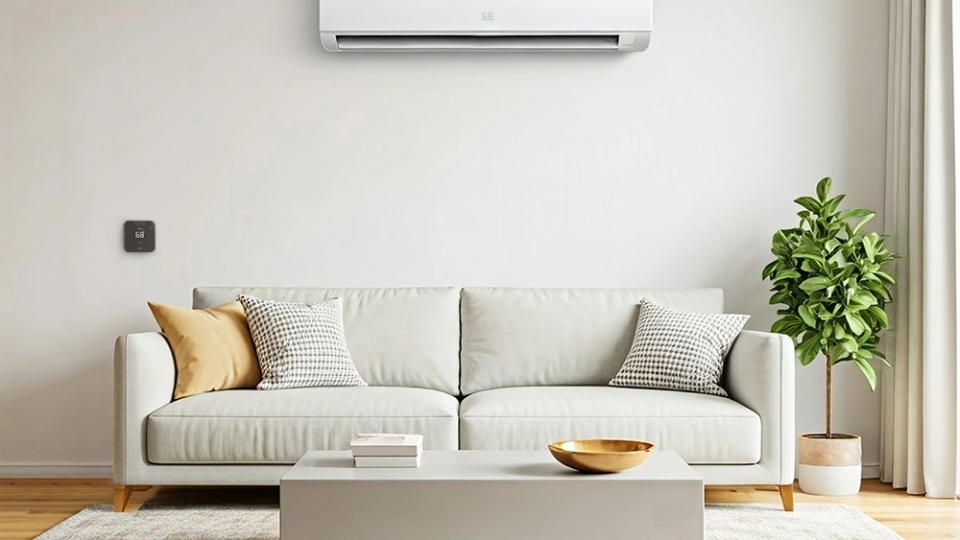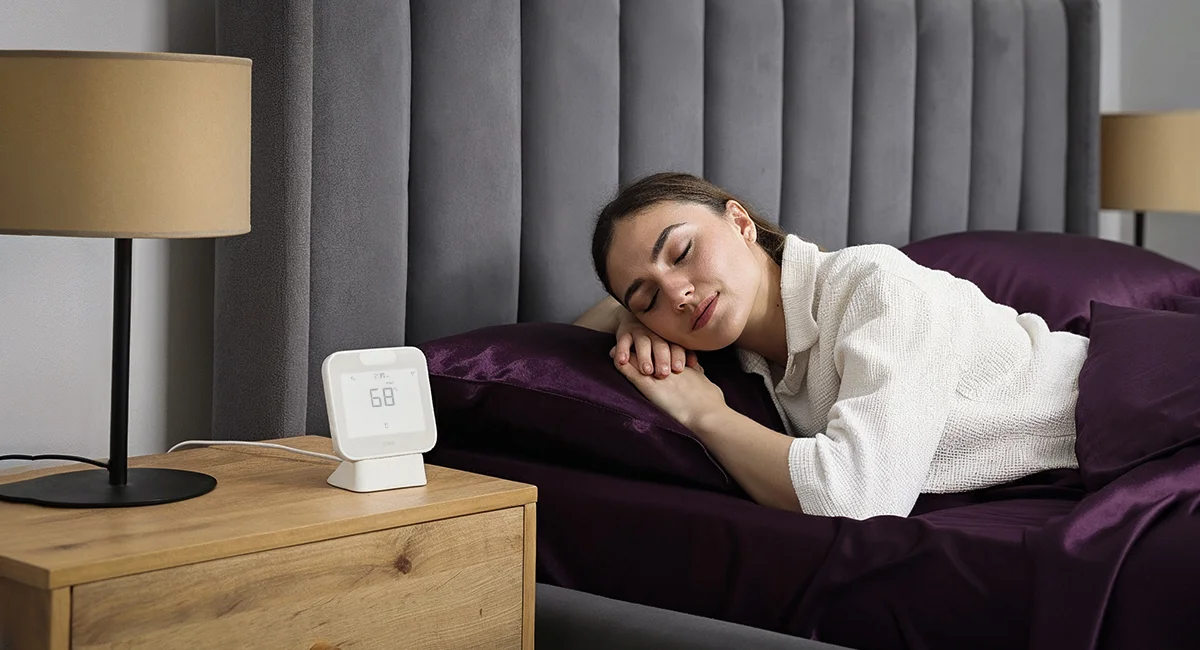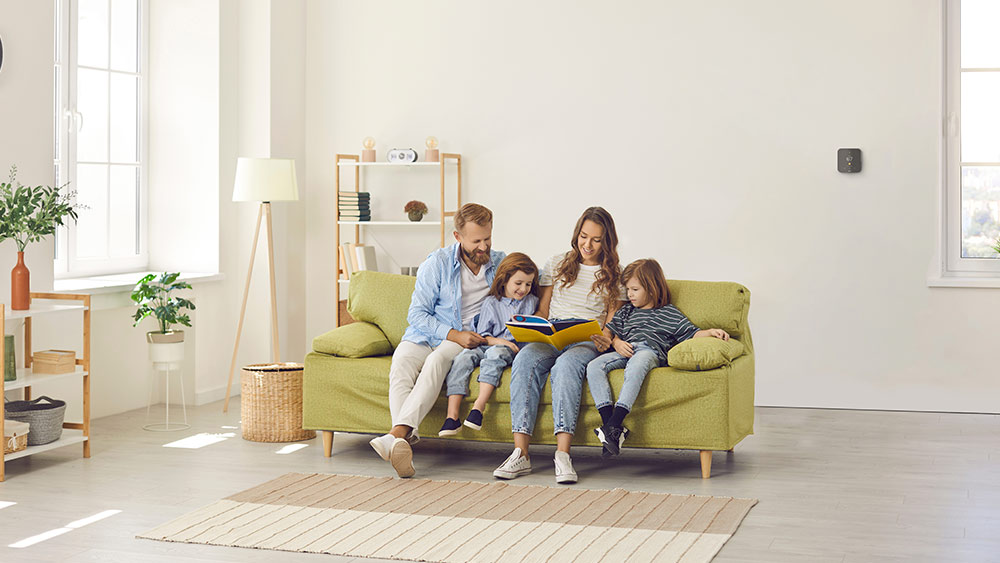
Key Takeaways
- Heat pumps provide both heating and cooling by transferring heat, making them ideal for year-round use.
- Air conditioners only provide cooling during summer months.
- While heat pumps have higher upfront costs, they can save money in the long run due to high energy efficiency.
Whether you are upgrading your current HVAC unit or installing a new one, you might have come across the heat pump vs. AC debate. Although heat pumps and air conditioners share a similar technological foundation, heat pumps stand out as more versatile and cost-effective. Moreover, unlike AC units that focus solely on cooling, heat pumps provide both heating and cooling functionalities.
This heat pump vs. AC guide explores the key differences between the two units based on factors such as efficiency, price, maintenance needs, and installation methods. It also sheds light on the pros and cons of heat pumps and air conditioners to help you find the optimal heating and cooling solution for your home.
What Is a Heat Pump & How Does It Work?
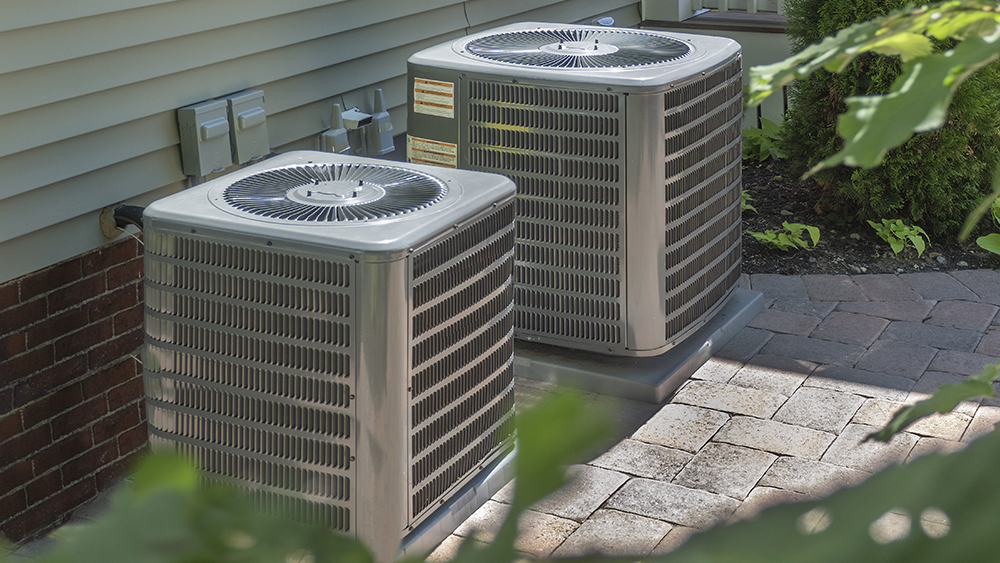
A heat pump is an HVAC system that relies on the principles of heat exchange. By transferring heat rather than generating it, heat pumps efficiently maintain comfortable temperatures within your home with minimum heat loss.
A typical air source heat pump operates by leveraging a gaseous substance known as a refrigerant to absorb heat from the surrounding air. This absorbed heat is then transported indoors, where the heat pump releases it, effectively warming up your home.
During the summer months, the heat pump can seamlessly switch to air conditioning mode by reversing the flow of the refrigerant. In this mode, it absorbs heat from inside the house or building and releases it outside, contributing to a cooler indoor environment. The distribution of the conditioned air to your entire house occurs through a system of vents and ductwork.
There are also ductless mini-split heat pumps that deliver air right where it is needed using indoor air handlers. They do not require any ductwork and can be installed in individual rooms. You can add smart functionality to these units using mini-split thermostats. Using these smart devices, you can manage your room climate from anywhere in the world using your phone.
Apart from air-source heat pumps, you can also opt for other types of heat pumps, such as geothermal and water-source heat pumps. Geothermal heat pumps harness heat from the ground, while water-source heat pumps extract heat from water sources.
Your best choice to make any mini-split, window,
or portable AC smart. Enhance your comfort and savings.
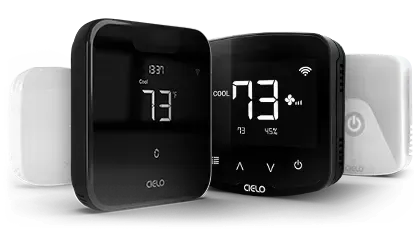
Pros and Cons of Heat Pump
Heat pumps boast greater versatility, functioning as both heating and cooling systems, compared to air conditioners. However, this functionality comes at a higher upfront cost. As they work all year round, they have a shorter lifespan compared to AC units.
| Pros | Cons |
|
|
|
|
|
|
|
What Is an Air Conditioner & How Does It Work?
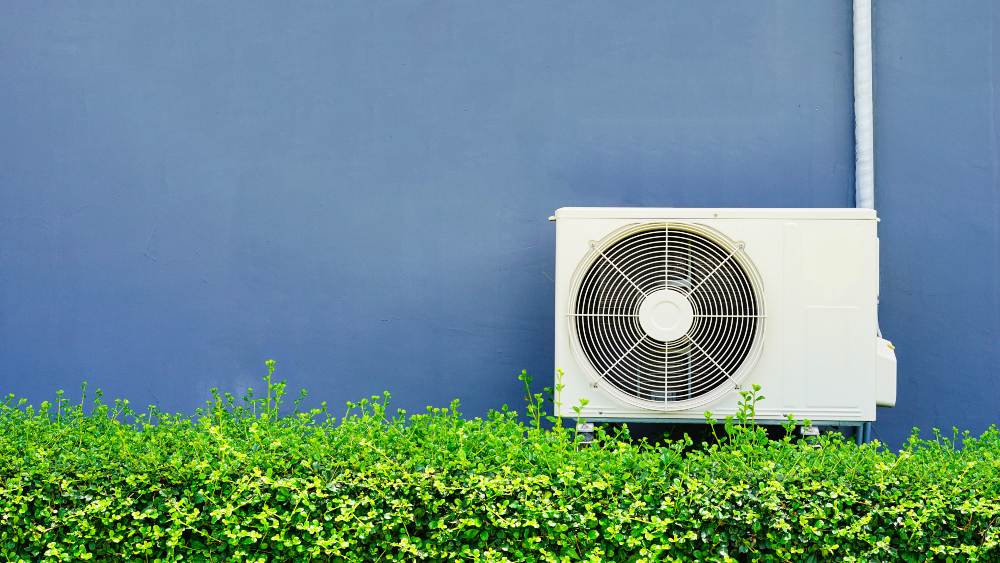
Air conditioning is a cooling system that enhances indoor comfort and air quality by removing heat and humidity from your home and pumping cool air inside. Unlike heat pumps, air conditioners solely provide cooling, and you will require a separate heat source, like a furnace, for heating purposes.
The working of an air conditioner involves transferring heat from the inside of your home to the warmer outdoor environment. It has an indoor unit that houses the evaporator coils and an outdoor unit containing the compressor and the condenser coils.
Heat removal occurs within an air conditioner through the compression and expansion of a refrigerant. As the hot air passes on the evaporator coils, the liquid refrigerant inside it extracts heat from it and changes from a liquid to a gaseous state. The resulting hot refrigerant gas is then pumped outdoors to the condenser, where it transforms back into a liquid state and releases its accumulated heat. Once the heat is removed, only cool air remains to be blown back into the room. Using ducts and vents, the AC circulates cool air in your house.
Pros and Cons of an Air Conditioner
Air conditioners are a great option to cool down large spaces when considering AC vs. heat pumps. They typically come with lower initial costs. However, a crucial consideration is that using an air conditioner necessitates the addition of a separate heating system, leading to higher overall expenses compared to opting for a heat pump alone. Since most homeowners don’t need to run their air conditioners continuously year-round, these cooling systems generally have extended lifespans and demand fewer tune-ups compared to heat pumps.
Related: Signs Your AC Tune-Up is Due: Keep your AC in Top-Notch Condition
| Pros | Cons |
|
|
|
|
|
|
|
|
Heat Pump vs. AC: Diving Into the Fundamental Differences
Heat pumps are designed to move heat from one area to another and operate in both heating and cooling seasons. Air conditioners, on the other hand, are used in hot weather when you only need to cool your home. They are easy to maintain but are of no use in winter when you need warm air in your house. Ultimately, choosing between a heat pump and an air conditioner will depend on your specific needs and climate.
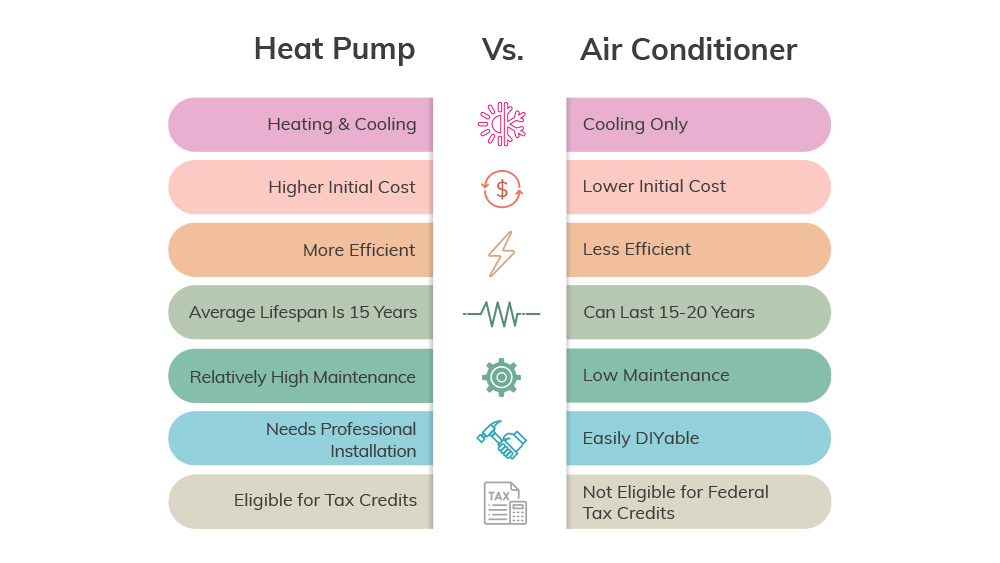
1. Efficiency
The Seasonal Energy Efficiency Ratio (SEER) is the standard measurement used to determine just how energy-efficient your cooling system is. You can get the ratio by dividing the cooling output by the electric energy input during a typical summer season. A higher SEER rating points towards a more efficient system, which means less unnecessary energy consumption and more money saved in the long run.
The Heating Seasonal Performance Factor (HSPF), on the other hand, measures the efficiency of the heat pump in heat mode. It is the ratio of the heat pump’s total heat output with the electricity consumed.
Heat pumps outperform air conditioners in terms of energy efficiency, consuming less electricity to operate. They are also better at dehumidification in the summer season than ACs. When compared to other heating systems, such as furnaces and baseboards, heat pumps can reduce electricity usage by about 65%. However, it is crucial to note that in extremely cold climates, when the outdoor temperatures drop below freezing, the heat pump’s efficiency declines. To address this limitation, you can opt for dual-fuel systems or cold-climate heat pumps.
Dual fuel or hybrid systems combine a heat pump with a furnace, allowing the furnace to take over heating duties when the outdoor temperatures become extremely cold. This way, the system maintains efficiency by utilizing the most appropriate heating source for the prevailing conditions. Cold-climate heat pumps are specially designed for freezing temperatures and have components such as variable speed compressors that help them work in extreme climatic conditions.
2. Cost
In terms of heat pump vs. AC cost, the latter has a lower upfront cost. In contrast, heat pumps generally entail a higher initial investment. They typically range in price from $4,206 to $7,600, with a national average of about $5,947. The installation expenses for a heat pump, encompassing both equipment and labor, can go up to $10,000. The final cost depends on factors such as your home’s size and the complexity of the system. For those without existing ductwork, an additional expenditure of $3,000 to $7,500 is necessary to install 300 linear feet of ductwork.
Geothermal or solar heat pumps can escalate the expenses to a range of $18,000 to $34,000. While the initial costs may appear substantial, it’s crucial to note that heat pumps offer efficient heating and cooling, often proving to be a worthwhile investment in the long run. The more budget-friendly options are air-source and mini-split heat pumps, with lower installation costs.
On the contrary, air conditioners generally have a lower price tag than heat pumps, with costs typically ranging from $3,000 to $7,000. However, air conditioners are primarily designed for cooling, and if you require heating during colder months, additional equipment would be needed, thereby increasing overall energy costs. The all-encompassing installation expenses for an entire HVAC system, combining both AC and furnace, typically fall within the range of $5,000 to $12,000.
3. Lifespan
Considering the lifespan of your HVAC system is pivotal, and various factors come into play. Typically, central AC units tend to outlast heat pumps. Air conditioners can last from 15 to 20 years, while heat pumps have an average lifespan of 15 years. In coastal regions, ACs can last up to 10 years, and they are higher in moderate climates, closer to 20-25 years. This is primarily because air conditioners only operate when cooling is required, whereas heat pumps are in use year-round. However, this is not an absolute rule.
The durability of your heat pump and air conditioner depends on various factors, including frequency of usage, maintenance practices, and your location’s climate. Typically, these systems endure longer in cooler climates than in warmer ones.
It’s essential to note that regardless of the system type, regular HVAC maintenance is crucial for optimal efficiency and performance. Qualified technicians must perform yearly inspections to identify and address any potential issues, ensuring that the system operates at its maximum efficiency.
4. Climate
In regions characterized by moderate climates, opting for a heat pump proves to be a more economical choice compared to an air-conditioning system. This decision eliminates the need for installing both an air conditioner and a furnace, resulting in potential cost savings. Additionally, heat pumps often come with lower electricity bills, enhancing the overall financial benefits. With proper maintenance, a heat pump can offer longevity comparable to that of air conditioning units.
Conversely, in freezing climates where temperatures frequently drop below 35 F, the efficiency of heat pumps diminishes. In such frigid conditions, it becomes more practical to invest in an air conditioner for the warmer months and a furnace for the cold season. Attempting to run a heat pump in freezing weather proves inefficient and may not provide adequate warmth.
5. Maintenance Needs
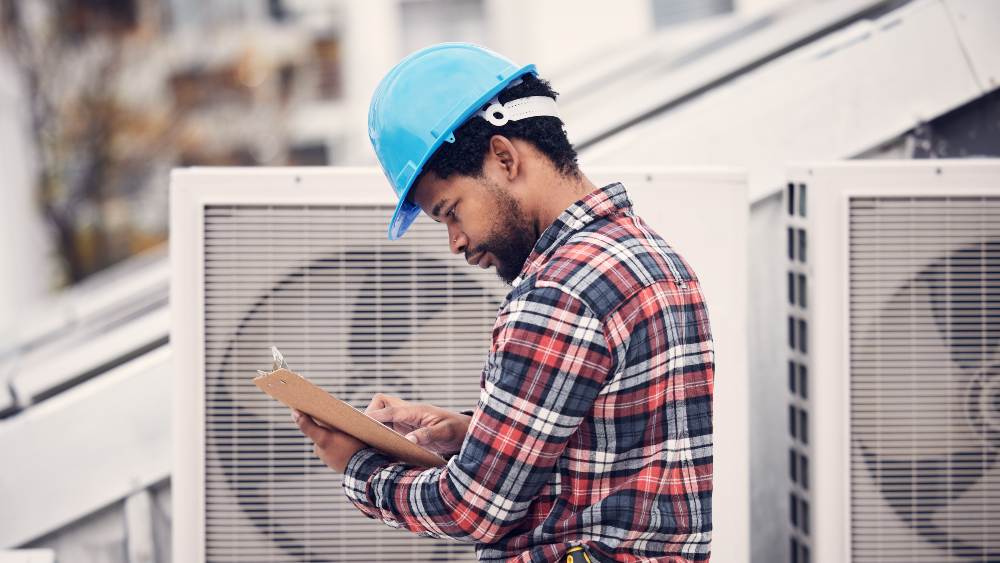
Heat pumps operate for both heating and cooling, running throughout the year. This dual functionality can result in more frequent usage, potentially leading to increased wear and tear. It is best to have your unit inspected by a professional twice a year before the start of every cooling and heating season.
Air conditioners are typically used during warmer months, experiencing less year-round strain compared to heat pumps. This can result in lower maintenance requirements.
Some of the maintenance tasks that you can undertake yourself include:
- Clean air filters every month and replace them every 3 weeks.
- Cleaning dirty outdoor coils. Here is a detailed AC coil cleaning guide.
- Checking for snow or ice buildup during winter in case of a heat pump.
- Clearing leaves and debris from the surroundings of your unit.
- Ensuring that your HVAC unit is elevated above the ground and away from any leaky gutters.
- Check the drain pan and clean it thoroughly if it’s clogged.
Related: HVAC Preventative Maintenance: Complete Guide With Checklist
6. DIY Installation
Tackling a ducted heat pump may only be the best choice if you have a background in HVAC or prior experience. It’s best to hire professional installers for this job to minimize the chances of operational issues and potential damage due to improper installation. However, a mini-split is super easy to install, and most homeowners can DIY this task.
While it is technically feasible to install an air conditioner yourself, most manufacturers discourage this approach due to the risk of improper installation. They typically advise seeking professional assistance to ensure the correct setup of your AC unit.
7. Appearance
Both heat pumps and air conditioners share a striking resemblance in physical appearance, making it challenging to differentiate them solely based on looks.
To discern between the two, you can check for specific indicators. This includes examining the manufacturing label and activating the heat function on the thermostat. Additionally, features like emergency heat on the thermostat, which are characteristic of a heat pump, can be useful in determining the type of HVAC system.
Equip your HVAC system with smart features and achieve the perfect balance between comfort & savings.
Learn more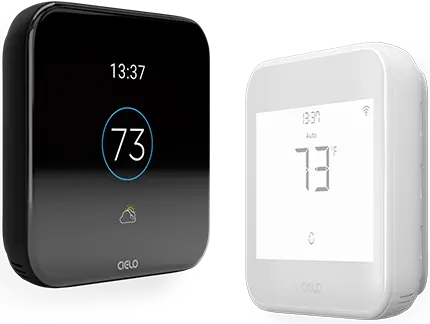
8. Tax Credits & Rebates
Check local laws because some local governments offer tax credits or refunds for installing heat pumps. Up to $2,000 in federal tax credits are available to heat pumps that meet efficiency standards. The benefit covers 30% of the pump’s total cost, including labor.
Conversely, air conditioners are not eligible for federal tax credits; however, certain models can be eligible for rebates under the Energy Star home appliance program.
Final Verdict
Air conditioners have long been a staple, with a significant majority of households relying on them to maintain a cool indoor climate. They are more budget-friendly and simpler to maintain, making them ideal for swift and effective cooling during hot summer months. On the downside, they can’t provide heating, and you will have to invest in a separate unit for heating. Also, they are less efficient than heat pumps.
Heat pumps, on the other hand, can both heat and cool your home and also surpass air conditioners in energy efficiency and cost-effectiveness. However, it’s crucial to note that the initial investment for heat pumps tends to be higher, and they may require more frequent maintenance.
When making the final decision, compare the pros and cons and cost of a heat pump vs. AC. Also, take into account your budget, the climate of your region, and your specific heating and cooling requirements and assess whether you’re willing to make an upfront investment for enhanced efficiency.
